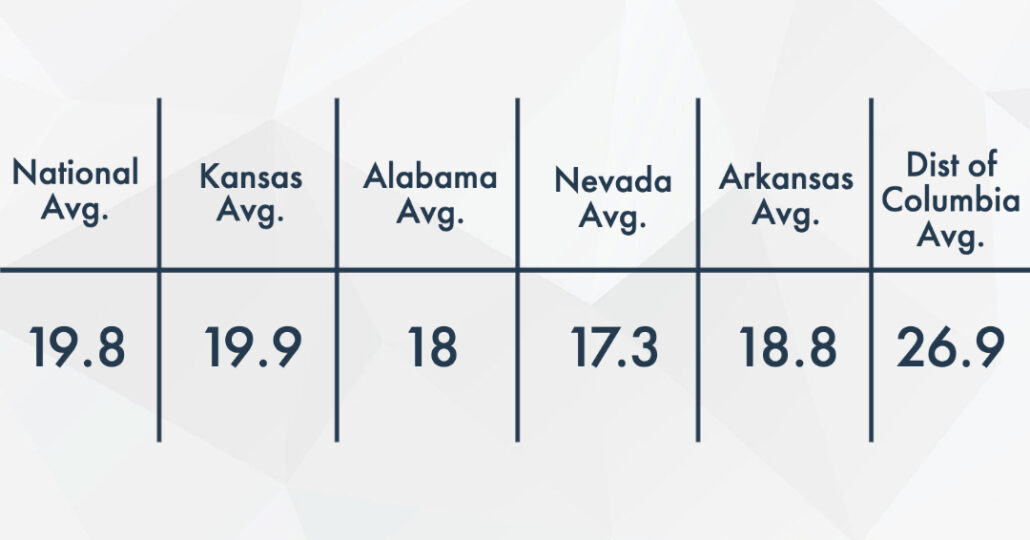Everyone wants the infamous 30 ACT composite score. Why does every student desire a 30 on their ACT? Just to say they have a 30? What does a 30 composite score actually get you? More scholarships? Entry into a highly selective school? The ability to say you scored a 30? Maybe. Maybe a 30 composite score will get you all of those things, but let’s take a closer look to see if that score is the right score for you.
Did you know that the National average ACT score for college bound students is a 19.8? The average for the state of Kansas is 19.9 and the average score for the state of Alabama is a 18. Meanwhile, The District of Columbia averaged 26.9, keeping in mind the estimated percent of graduates tested was only 18%. We want state and national averages to be transparent because it’s important to understand how other high school students are scoring on their ACT test.

Scholarships
So why does a 30 ACT score haunt high school students? For most students, scholarship money is what drives a student to achieve the very best score they can. For example, The University of Alabama gives a break down of scholarships related to ACT/SAT scores, plus their GPA score. Students will be awarded $1,000 more if they score anywhere between 30-36 + a certain GPA. If you’ve taken the ACT 3x and can’t get past a 28 or 29, don’t worry about it. You’ll still get a great scholarship.
Make sure you at least have an outline of the types of colleges you would like to attend and then take those schools’ scholarship requirements into consideration. Most students would be shocked to realize the break usual isn’t at 30, but closer to 31, if not a 32 or higher.
College Entry
The same principal applies to college entry. Highly selective schools typically don’t look for a standard of a 30 ACT (or it’s SAT equivalent). They look for higher scores starting at a 31 or 32, plus a fantastic GPA of around 3.75 or higher. For example, Vanderbilt University in Nashville typical accepts students scoring in the 33-35 range. The middle 50% of scorers at Northwestern University in Evanston, Illinois is 33-35, similar to that of Duke University in Durham, NC. The bottom line is, do your research on the schools with which you’re truly interested and figure out if a 30 is sufficient or if you need to score even higher.
It’s so important to set proper goals based on what you are interested in, your ability, and what is tangible for you. If you take a pretest and score a 17 composite score, a 30 is big stretch – to say the least! Do you have endless amounts of time to study? What about your class schedule in high school? You don’t want to fall behind on your regular classes to study hours and hours for the ACT.
It’s so important to set proper goals based on what you are interested in, your ability, and what is tangible for you. If you take a pretest and score a 17 composite score, a 30 is big stretch – to say the least! Do you have endless amounts of time to study? What about your class schedule in high school? You don’t want to fall behind on your regular classes to study hours and hours for the ACT.
Extracurricular Activities
Another factor to consider is all of your extracurricular activities. Studying for and taking the October ACT while you are in football or volleyball will be totally overwhelming. How full is your schedule this semester? Do you even have the time and energy to spend on achieving a 30? The ACT has several test dates from which to choose throughout the year; choose one that makes sense for you and your schedule.
Get Smarter Prep has different prep options for any type of student: from a small group course to semi-private and private tutoring. Select an option and test date that will set you up for success, not overwhelm you. Setting a tangible goal score will the best way to assure success, whether it’s the infamous 30, a solid 26, or a Kansas average of 19.8.


